1. Most of us crave certainty, yet desperately fear death. This is odd, since there is nothing more certain than death.
The Covid-19 pandemic has led people to one of four beliefs: a. we must prevent all death at any cost, even if it means devastating the mental and physical health of survivors; b. death is something that happens to the sick and elderly and if we’re young and healthy then we don’t care; c. someone is always to blame for death, either the government, the medical professionals, or the dead person’s poor choices; or d. death can be controlled, and to not do so is a failure.
Here’s the thing: Everyone in this world right now will one day no longer be here. Maybe they’ll get sick from coronavirus. Maybe they’ll get cancer. Maybe they’ll get into an accident. Maybe they’ll die peacefully in their sleep before their 115th birthday. But no one is getting out of here alive. We cannot prevent death.
Yes, we can try to prevent excess death. We should care enough about one another to not engage in behaviors that put our most vulnerable at risk—everything from driving drunk to partying during a pandemic to shooting people. But in the end, we have to learn to accept that death is just a part of life, and it’s going to happen.
With the exception of cases ranging from negligent homicide to first degree murder, death is no one’s fault. Blame, except in cases of murder, does nothing for the living or the dead. There are many who argue (me among them), that even in cases of murder blame does nothing for the living or the dead. This is not to say there should not be justice; there should always be justice. But justice and blame are not the same thing, and once justice is served the best path to walk is that of mercy and forgiveness. That’s a bit too much for some people, and that’s okay. If we can just get away from the blaming it would be a good step.
My therapist has a phrase that I have had to learn to use every day during this pandemic: “There are no guarantees.” She was making me recite this phrase long before the pandemic began, but during these past six months to has become a lifeline for me. “Will I catch coronavirus?” “There are no guarantees.” “Will people in my family die of coronavirus?” “There are no guarantees.” However, after I ask and answer these questions, the next step is to remind myself that there are also no guarantees I will wake up tomorrow morning, or survive the day. If I stay in my house alone, I could die of choking on something or break my neck tripping over a cat. If I leave my house, I could die in a car accident. There. Are. No. Guarantees.
This exercise is called “exposure.” It involves acknowledging that there is uncertainty in everything–and repeating it so often, and in so many ways, that it just becomes . . . okay. Not easy. Not fun. Not awesome. But okay.
2. We have some serious economic issues to deal with. Now.
In the past six months we’ve learned that many of the people who make the most money in our society are the least essential, while also being confronted with the fact that most essential workers don’t make nearly enough money to sustain their lives when times are good, much less when they get tough.
When the pandemic got real and the shutdown happened, who stopped working almost entirely? Sports teams and all of Hollywood. Doctors kept working. Nurses. Medical cleaning staff. Nursing home employees. Scientific researchers. Teachers. Mail carriers. Supermarket workers. Restaurant cooks. Delivery service people. Other than doctors and perhaps researchers, the most essential workers were some of the lowest paid people in our country. That’s a problem. If someone is essential, their pay should reflect that.
I’m not saying this to denigrate the work of actors and sports stars, or argue that they should be paid less. Athletes and actors work very hard. Their work allows for the employment of hundreds of thousands of other people, from park stadium vendors to camera operators and merchandise creators. And, to be honest, their work goes a long way toward providing the experiences that make life worth living.
So while I think sports stars and entertainers have value, when the chips are down, my Publix stock people and cashiers were a lot more necessary to my daily life than my favorite movie stars. I’ve always appreciated my Publix employees more than movie stars, but I know the money doesn’t follow that appreciation. And that’s a problem.
It’s a problem that circles back to my point about the belief that death must be prevented at all costs, even the mental and physical health of survivors. Because it’s become clear that so many people live paycheck to paycheck, with so little savings, that they cannot withstand even a month’s loss of income. However, our government has, during this pandemic, not only shut down many means of making a living, but also acted as if a person can support herself for 10 weeks on a $1200 “stimulus check,” which is patently ridiculous. It’s made even moreso by an article I recently read which argued a family living in a big city making $400,000 a year cannot be considered rich. Our government believes a person can survive on $1200 for two months and “experts” are saying folks making $400,000 a year are not wealthy. Then what do we call those who must sustain themselves on $7,200 a year? Poor doesn’t seem to cut it. No wage disparity should not be this large.
These problems must be addressed. And granted, there are different approaches we can take, but just as we’ve thrown everything we can at fighting the virus to see what sticks, we should throw everything at these economic issues to see what can be done. And we should be allowed to have a real, purposeful, national conversation about it without name-calling and mud-slinging. Okay. I know that’s probably too much to ask. But a girl can dream.
3. Isolation may be deadlier than illness, and illness in isolation is the deadliest of all.
This week, Dr. David Nabarro of the World Health Organization released a much-maligned and misread statement. His exact words were: “We in the World Health Organization do not advocate lockdowns as the primary means of control of this virus.” Nabarro continued to say, “The only time we believe a lockdown is justified is to buy you time to reorganize, regroup, rebalance your resources, protect your health workers who are exhausted, but by and large, we’d rather not do it.”
People saw this as some kind of 180 degree turn in medical opinion. It’s not. No medical expert ever wanted lockdowns to be the primary way of controlling the virus. In March, we were told we were taking 15 days to slow the spread so we could get up to speed on protective equipment for medical workers, and testing, tracing and isolation of positive cases.
In April the coronavirus task force said that states should not open until they had a 5% positive infection rate or less, and should do so gradually. Sadly, almost no state followed these instructions. Some, like Florida, were nowhere near 5% by anyone’s calculations when we re-opened in early June, and when we did re-open many did not adhere to the social distancing guidelines. On the other extreme, some states decided to stay shut down even after they reached less than 5% positivity.
Just as opening too soon causes a plethora of problems with physical health, long-term lockdowns cause deterioration of people’s mental and physical health. In May, the United Nations warned that sustained lockdowns were going to cause a rise in mental health issues because of “the isolation, the fear, the uncertainty, and the economic turmoil.” In my local newspaper today, doctors in our area say people are contacting crisis support lines three times as much as they did before the pandemic.
According to mental health experts, Covid-19 has messed with the areas of human lives that keep humans going: health, friendship, family relationships, finances, and leisure. Because of the pandemic lockdowns, more people than we can even imagine are out of work in this country, much less all over the world. We’re not allowed to hug friends. We aren’t allowed to travel to see family without quarantining. We can’t truly safely go to theme parks, museums, theaters, concerts, bars, clubs, or sports events. There’s nothing fun to do, and we’ve been robbed of the normal venues in which we connect and socialize.
And these are the problems for younger, healthier people. Older generations are even more likely to be socially isolated. Loneliness has come to be recognized as, in and of itself, a risk factor for mortality. Isolation has been linked to increased risk for heart disease and death even among middle-aged folks.
So what do experts recommend? People who care for older family members need to make sure that they have food, medication, and masks for times when they must go out. They must help them get to their health care appointments, virtually if possible, but in person if necessary. No one should put off medical treatment out of fear of the coronavirus. Every day should have some kind of structure or routine, which should include some form of exercise, outdoors if possible, as well as connecting with others virtually–though it could also be done masked, in person, at six foot distance.
In short, we need to take care of each other, something I’ve failed at miserably these past few months. Sometimes it feels as if, when we can’t do the things we normally do for ourselves or others, we shouldn’t do anything at all. But these days, a text or a phone call can go a really long way. So, don’t wait. Reach out to someone you’ve lost touch with. My favorite text has become: “Checking in with you! How you doing? Have time to talk?” I try to do that with at least one or two friends a week. Connection is essential not only to combat isolation and loneliness. It can also lead to solutions for our economic issues–by truly understanding what others are going through, and what they need. Plus, connection makes our all-too finite lives worth living.
Categories: Diane's Voice, Health, Living, News


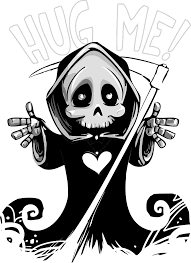
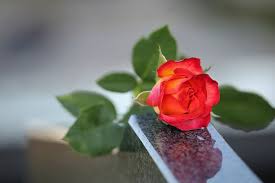

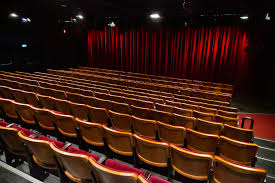
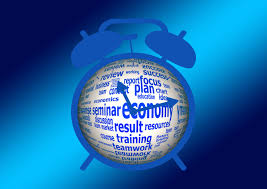

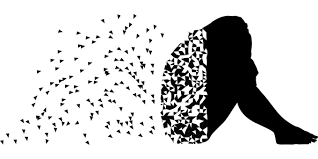

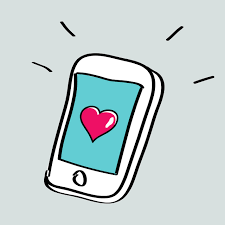
There are no guarantees. Amen to that! It’s funny, I can get in such a rut (especially these isolating days) that I almost guarantee I will feel down. When there are no guarantees that I will feel down, just as there are no guarantees that I will feel joy. I actually do have control of my feelings, and I need to wrest that control more often. I’m trying to reprogram myself to find joy in these strange and strained days. Because the last thing I want to do is to have my kids follow in my worry-wort, negative Nancy shoes!
LikeLike